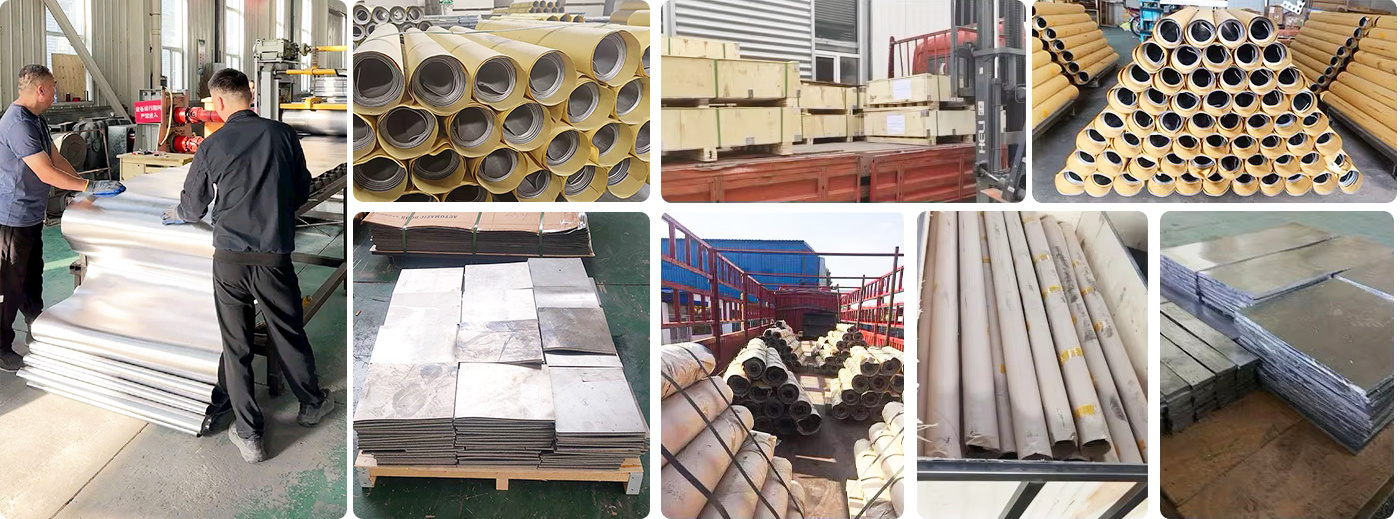






Medical-Grade Lead Sheets - Safety Barrier for X-Ray Rooms

Whatsapp:
E-mail:
Category: Lead Plate
Medical-Grade Lead Sheets - Safety Barrier for X-Ray Rooms
Lead Plate: Performance Analysis and Industrial Applications
Chemical Composition
Lead plates are primarily composed of metallic lead (Pb) with a purity typically exceeding 99.97%, compliant with international standards such as ASTM B29. To meet specialized requirements, trace alloying elements may be added:
- Antimony (Sb): Enhances hardness and wear resistance, typically at 0.5%-3%;
- Calcium (Ca): Improves corrosion resistance for chemical environments;
- Tin (Sn): Increases ductility for precision forming applications.
Lead's inherent corrosion resistance allows it to withstand acids, alkalis, and humid environments without additional coatings.
Mechanical Properties
Lead plates exhibit unique physical properties:
- Density: 11.34 g/cm³, providing superior radiation shielding;
- Tensile Strength: 12-18 MPa, ideal for static load-bearing applications;
- Ductility: Can be elongated over 50% of original length, suitable for cold rolling;
- Hardness: Brinell Hardness (HB) 3-5, offering excellent machinability;
- Melting Point: 327.5°C, compatible with low-temperature welding.
Despite low strength, its energy absorption capacity excels in vibration damping and soundproofing.
Applications
1. Radiation Protection
- Medical: X-ray room shielding, CT scanner barriers;
- Nuclear: Reactor containment, nuclear waste containers;
- Laboratories: Radioisotope storage units.
2. Chemical Corrosion Resistance
- Acid tank linings, electrolytic cell components;
- Marine pipeline anti-corrosion layers.
3. Architectural Acoustics
- Recording studio soundwalls, machinery room noise barriers;
- Seismic foundation damping layers.
4. Battery Manufacturing
- Core material for lead-acid battery electrodes;
- High-purity plates for energy storage systems.
Packing and delivery

Keywords: Medical-Grade Lead Sheets - Safety Barrier for X-Ray Rooms
Client Feedback










Quality Service And Excellent Team




FAQ

Can you customize special specifications of lead rods?

Requirements such as diameter, length, purity, surface treatment, etc. need to be provided, and some need to pay for molds or meet the minimum order quantity.

Can the dimensions of the lead plate be customized?

Sure, the size specifications of lead plates can usually be customized according to the specific needs of customers. Both length, width, and thickness can be produced according to requirements to meet the installation and usage requirements of different projects.

What are the common thicknesses of lead plates?

Common lead plate thicknesses include 0.5mm, 1.0mm, 1.5mm, 2.0mm, 2.5mm, 3.0mm, etc. Of course, lead plates of other special thicknesses can also be customized according to different application needs.

What is the density of lead sheet?

The density of lead is about 11.34 g/cm3, and the density of the lead plate is roughly in this range, which makes the lead plate have a good ability to shield rays.

What are the main components of lead sheet?

The main component of lead sheet is metal lead, which usually contains a small amount of other elements, such as antimony, tin, etc., to improve the performance of lead sheet.
Hot Products

